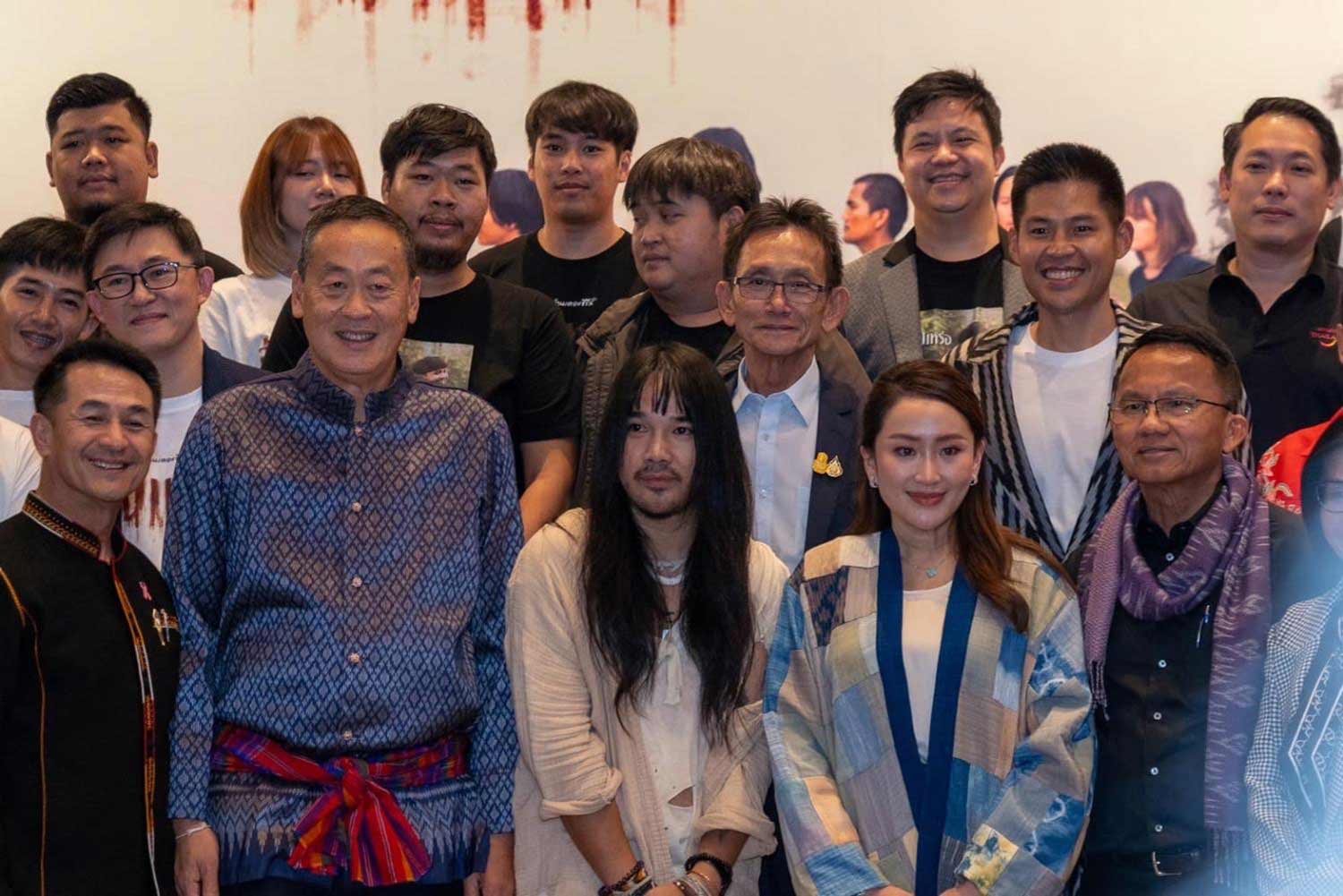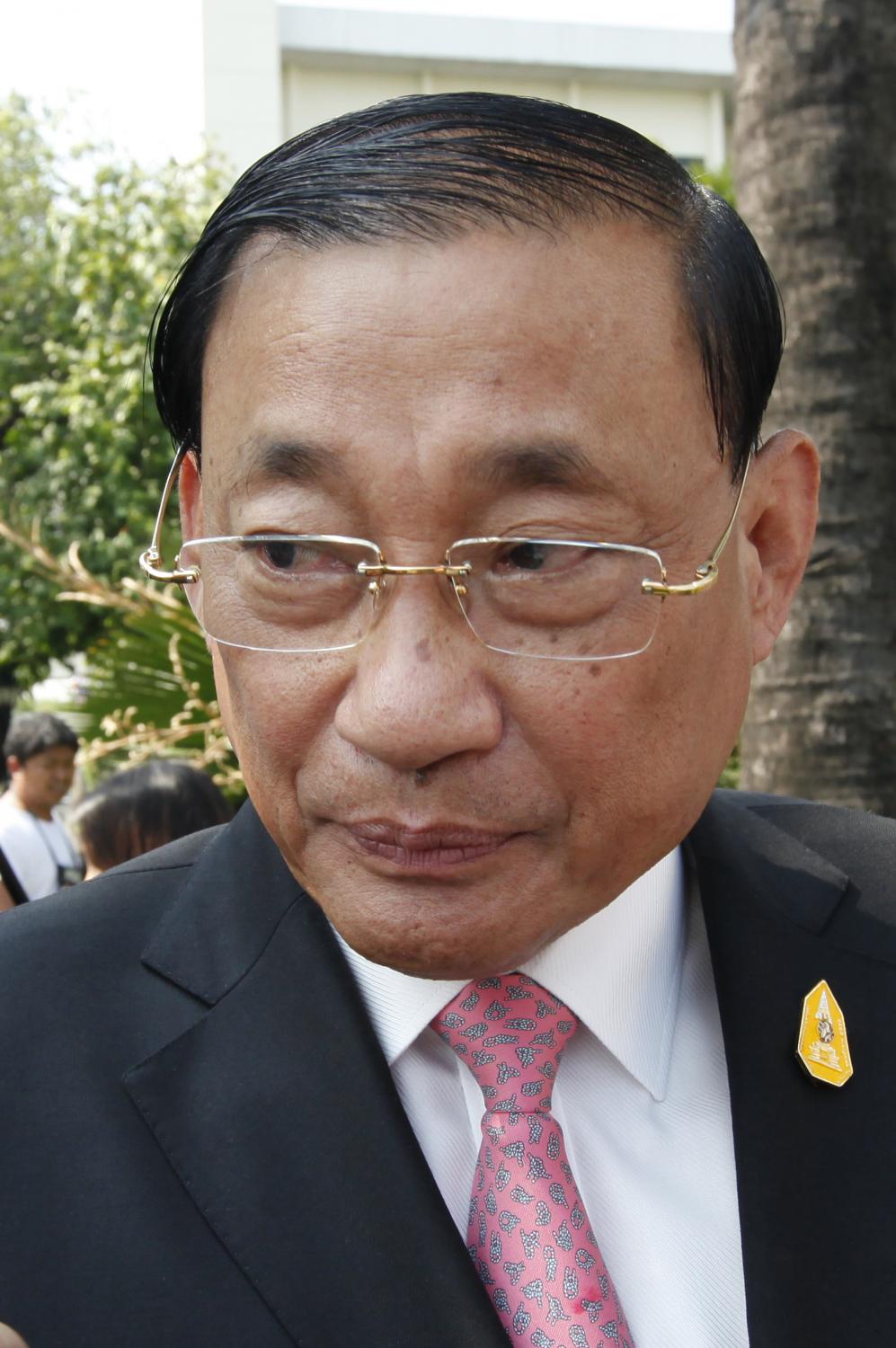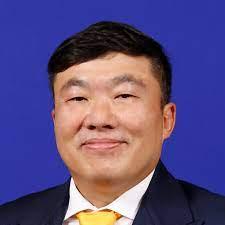
When Prime Minister Srettha Thavisin led members of his cabinet on Wednesday to watch Sap-Pa-Rer (The Undertaker), which has earned more than 500 million baht since it hit local theatres early this month, it was not about him socialising with his team.
Joining the prime minister was Paetongtarn "Ung Ing" Shinawatra, the newly elected leader of the ruling Pheu Thai Party, who also serves as deputy chairwoman of the national committee on soft power strategy and heads the national committee on soft power development.
Just hours before the cinema visit, the national committee on soft power development held its first meeting, in which 12 panels were appointed to draw up urgent, six-month and one-year plans to promote the country's soft power and generate revenue.
Mr Srettha's movie night not only underlines the Pheu Thai-led government's commitment to enhancing soft power to drive economic prosperity but also highlights Ms Paetongtarn's role in the initiative.
Given her roles in these committees, the success or failure of the government's soft power policy lies with Ms Paetongtarn, while the job is also widely seen as a big step forward in her political career.
The Bangkok Post has talked to individuals responsible for implementing the soft power policy about their aims, and other stakeholders about their expectations.

A creative economy
According to Dr Surapong Suebwonglee, a member of the national committee on soft power development, the initiative is aimed at helping Thailand break free from the middle-income trap.
The current economic structure is unlikely to provide a solution, and a study into the economic structures of other countries suggests a shift away from low-skilled labour is now of the utmost necessity, he said.
"Moving to sectors that require high-skilled workers and creativity is important. We will have to reskill our workforce so they meet the demands of the market, have jobs and income security," said Dr Surapong.
The government's soft power policy will support Pheu Thai's "one family, one soft power" initiative, which is based on the idea that after receiving training, at least one family member should be able to earn a minimum of 200,000 baht per year.
Among the industries with vast potential to support the creative economy are food, sports, fashion, music and film, and the government must strengthen them so they can be competitive in the global market, he said.
"Films are a powerful tool to promote other products, too. Take South Korea as an example. We believe in a comprehensive approach covering all aspects including reskilling the workforce and strengthening target industries," he said.
Preparations are under way to register those interested in acquiring new skills, with the goal of enrolling 1 million people in the first year and 20 million within four years. While all family members are allowed to register, only one per household can take part in the initial phase, he said.
Dr Surapong sounded a note of optimism about the policy, pointing out that 11 industries have a say on the national committee on soft power strategy.
Their expertise and in-depth knowledge, including legal and financial constraints, will make a valuable contribution, he said, adding research will also be conducted to develop the policy.
Regarding its economic value, he said the government expects the policy will generate worldwide interest, resulting in increased tourism and demand for these products estimated at 10 trillion baht per year, as well as a yearly income of 200,000 baht per family.
Dr Surapong also expressed confidence Ms Paetongtarn would be up to the job, saying she is dedicated to turning the policy into action and her work is an important step in her political career.
"She has been committed to her political work since stepping in as head of the Pheu Thai Family. She gave her best during the campaign and she is now helping with one of the key government policies. It is an opportunity for her to prove herself," he said.
Individual households
The "One Family, One Soft Power" strategy bears a striking resemblance to the "One Tambon One Product" (Otop) programme launched over a decade ago to support unique, locally made products from tambon all over the country.
Culture Minister Sermsak Pongpanich said the soft power initiative focuses on creating jobs for individual families rather than the broader community.
The policy aims to develop 20 million creatively skilled families with earnings of at least 200,000 baht each per year, he said.
"To address poverty, targeting individual households can generate a better result. At the tambon level, some households may not participate. But the family-focused approach gives us a clear and specific policy," he said.
The soft power programme hinges on the collaboration of the private and public sectors, with the Culture Ministry poised to promote the social aspects and make it appealing on an international scale.
Moreover, the ministry has a vast pool of resources to contribute to the development of high-skilled workers for the performing arts sector, he said.
In addition to preparing the workforce for the creative economy, the government must listen to suggestions from the private sector and address any issues they face.
On Ms Paetongtarn's role in promoting soft power, Mr Sermsak said he has no doubts in her capability and dedication.

Sermsak: Jobs for individual families
Defining soft power
Siripong Angkhasakulkiat, the producer of Sap-Pa-Rer, welcomed the government's policy to support the Thai film industry and soft power development but urged the government to first ensure people understand what soft power really is.
In his view, soft power is not a product, but the process of creating an appeal to something. While films can serve as tools promoting the country's soft power, they are not necessarily soft power in their own right.
"It's not wrong to see films or gaming as forms of soft power, but soft power isn't mangos, durian or something like that. But if you watch a movie and it makes you feel like eating a mango or a durian -- it's more like that.
"Soft power is about the process of making people interested in experiencing a culture or product," he said.
As for film production, he said that in the past, state agencies tended to provide support to projects that aligned with the government's policy, despite this potentially being counterproductive.
Instead of telling film producers what kind of movies to make, the government should set a general theme and allow them to work within that framework to retain their creativity, he said.
"If the government wants to promote Thai fabrics or food like sticky rice and mangos, just give them the general idea rather than telling them what content they should create. That would generate more diversity and draw more people in," he said.
Mr Siripong said the economic value of the soft power policy is potentially huge, but not every project is a guaranteed success. If a budget of 100 million baht were to be set aside for the film industry to make a dozen films, it could result in a 100-fold financial return, or a dozen turkeys.
That financial support would not be completely wasted, however, because the money is being spent on giving people jobs and generating economic activity.
"Sap-Pa-Rer has earned more than 500 million baht at the box office, but I think more than one billion baht has changed hands because people also spend money on food and beverages. Some theatres make more money from F&B sales than ticket sales," he said.

Siripong: Know what soft power is first
Patience needed
Kong Rithdee, deputy director of the Thai Film Archive, said the success of Sap-Pa-Rer didn't spring out of thin air; rather, it is a product of experience collected over seven or eight years, and the government should not get overly excited about it.
He said the soft power policy is highly appreciated but it needs to be implemented systematically.
When it comes to the film industry, the government should not focus solely on filmmakers as audiences are equally important, he said, adding the government should give the industry time to mature instead of pulling the plug in case it fails in the first few years.
On film censorship, he said countries such as South Korea and Japan, as well as some European nations, eschew this as they appreciate how movies can portray cultures and greater diversity while contributing to a nation's soft power.

Kong: Give industry time to mature
Wichai Charoentra, who owns an outdoor mall in the Thong Lor area, said developing Thailand's soft power deserves government support because it can drive significant and sustainable growth.
He said the previous government's soft power promotion policy focused on on food, fashion, films, festivals and fighting but it did not accomplish much and the creative economy has since been left to grow without any clear sense of direction.
Pointing out how many people tend to be driven by fads, Mr Wichai expressed concern that the government's interest in supporting the film industry could be short-lived, adding the industry would not be able to attract and retain talent if that proves to be the case.
"I hope the government is serious about turning this policy into action because it already has soft power committees. Make it a national agenda item, because it can trigger sustainable growth much more effectively than the digital wallet programme," he said.

Wichai: People tend to be driven by fads